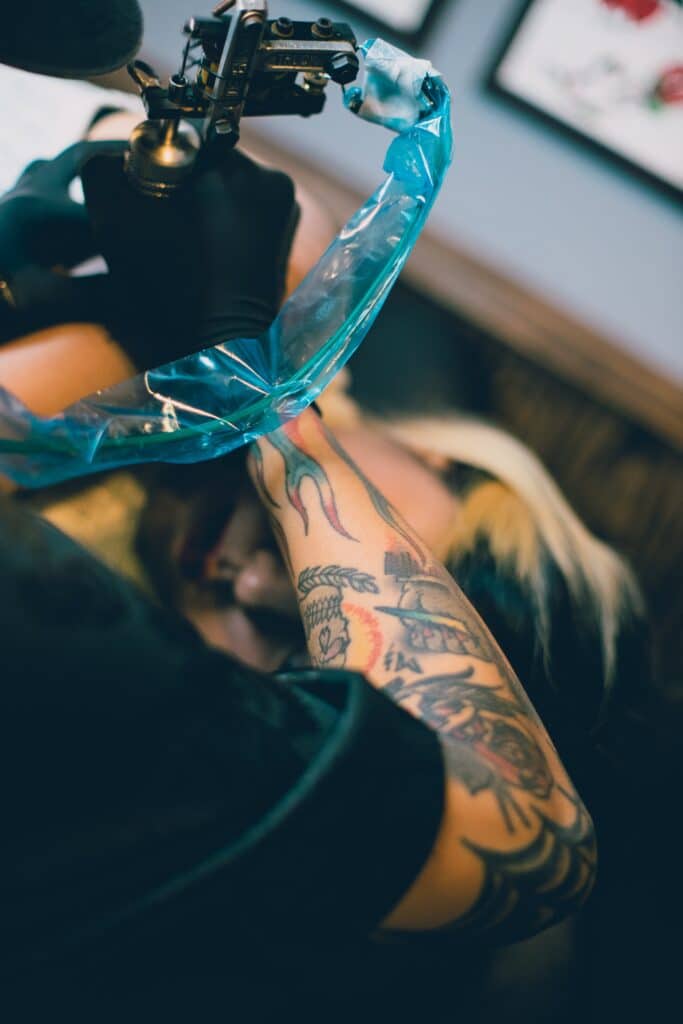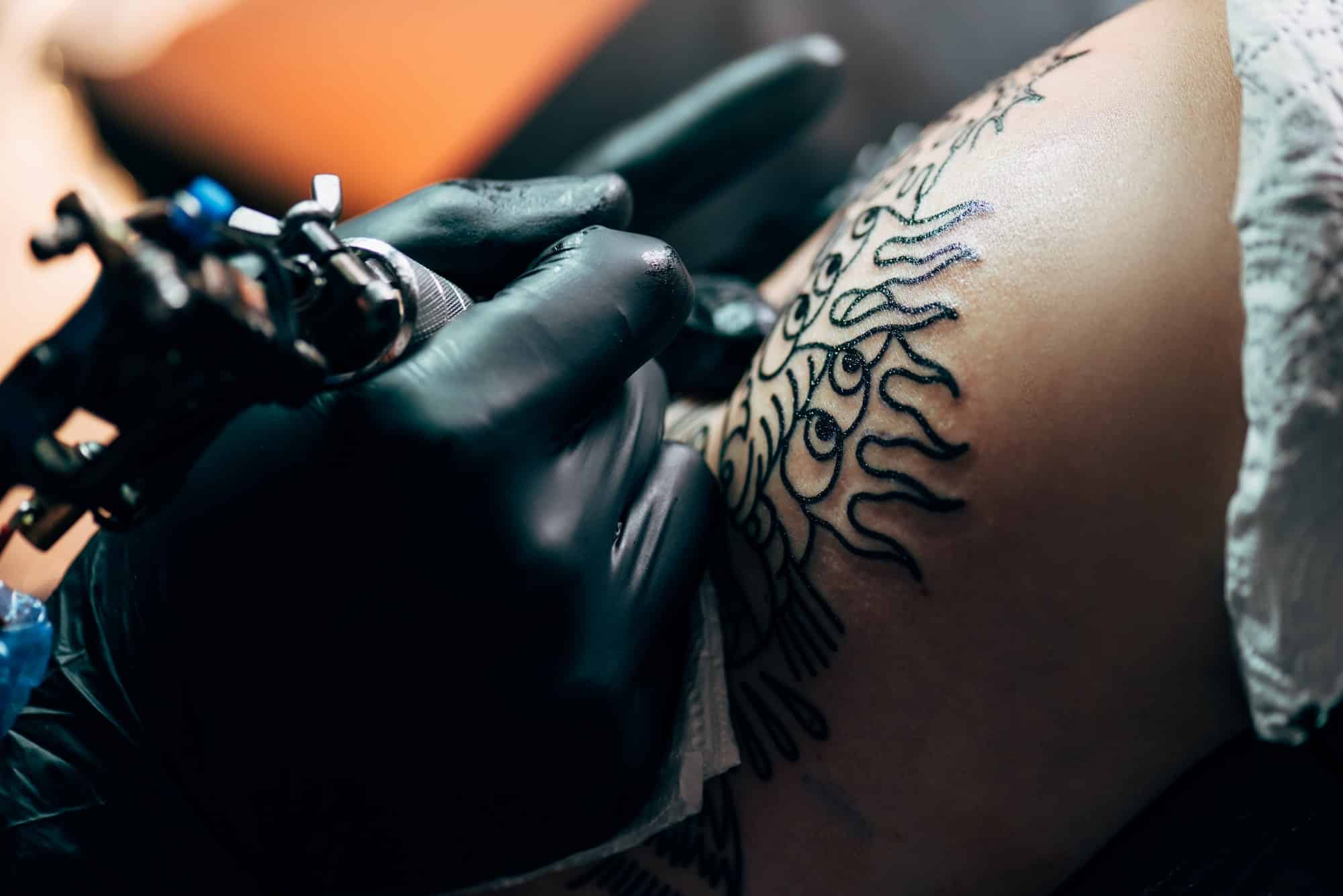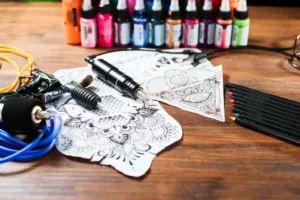No More Itching And Scratching: Your Guide To Tattoo Relief
Are you a proud owner of a new tattoo? Congratulations! Unfortunately, with the joy and excitement of your new piece of body art often comes the dreaded itching. Itching is an inevitable part of the healing process and can be quite annoying.

If you’re wondering how to stop tattoo itching, you’ve come to the right place! This article will provide tips and advice on quickly and effectively alleviating your itchy tattoo.
Causes Of An Itchy Tattoo
A tattoo is a permanent work of art that you carry forever. However, sometimes this art can cause discomfort and itchiness. An itchy tattoo can be frustrating and lead to skin infections if improperly handled. Here are some common causes of an itchy tattoo:
Normal Healing Process
The normal healing process for tattoos often involves some level of itchiness. As the skin heals, it can become dry and flaky, which leads to a natural urge to scratch. This can be especially difficult for those with larger pieces or intricate designs that require more attention during the healing period.
However, resisting the temptation to scratch or pick at your tattoo is important. Doing so can cause scarring and even lead to infection. Instead, use a moisturiser designed for tattoos to soothe discomfort or itching.
It’s also important to keep your tattoo clean during the healing process. Follow your artist’s aftercare instructions closely and avoid exposing your tattoo to direct sunlight or soaking it in water until it has fully healed. Remember, patience is key when properly caring for your new ink!
Infection
Infection is a common problem that can occur after getting a tattoo. It is important to recognise the signs and symptoms of an infected tattoo to prevent further complications. One of the most common symptoms of an infected tattoo is itching.
If your tattoo feels itchy, it is important not to scratch or pick at it, as this can introduce bacteria into the skin and worsen the infection. Instead, keep the area clean and dry by gently washing it with mild soap and water twice daily. You can also apply a thin layer of antibiotic ointment to help prevent infection.
Other signs of an infected tattoo include redness, swelling, warmth around the area, pain, and discharge or pus. If you notice these symptoms, seek medical attention immediately, as untreated infections can lead to serious health problems such as sepsis or blood poisoning.
Allergic Reaction To The Pigment
An allergic reaction to pigment can occur after getting a tattoo. For some, the only symptom may be an itchy sensation, but the reaction can be severe and require medical attention for others. It’s important to understand what causes this type of reaction and how to prevent it.
When a person gets a tattoo, ink is injected into the skin using needles. This ink contains pigments that give colour to the design. In rare cases, the body may identify these pigments as foreign substances and launch an immune response against them. This results in an allergic reaction that can cause mild to severe itchiness, redness, and swelling around the tattooed area.
Preexisting Skin Conditions
Preexisting skin conditions can present challenges when it comes to getting a tattoo. If you have an itchy skin condition, such as eczema or psoriasis, a new tattoo’s added irritation can worsen symptoms.
Additionally, if you have an open wound or active infection in the area where you plan to get inked, it’s best to wait until it has fully healed before proceeding with your tattoo.
Consulting with your dermatologist before getting a tattoo is highly recommended. They can advise on the best course of action based on your specific condition and guide how to minimise potential complications. It’s also important to communicate with your tattoo artist about your preexisting skin condition so they can take extra precautions during the process.
Treating An Itchy Tattoo
If you’ve recently gotten a tattoo, it’s common to experience some itching. While this is usually a normal part of the healing process, it can be annoying and uncomfortable. Fortunately, several ways can alleviate the itchiness and ensure your tattoo heals properly.
Apply OTC Creams And Ointments
OTC creams and ointments are a popular treatment option for skin conditions such as itchy rashes, eczema, psoriasis, and tattoos. These products can be easily obtained without a doctor’s prescription and come in different formulations to suit individual needs.
For itchy skin, OTC creams containing ingredients such as hydrocortisone or calamine can provide relief by reducing inflammation and soothing the affected area. It is important to read the label carefully and follow the instructions to avoid adverse reactions.
Regarding tattoo aftercare, OTC ointments containing petrolatum or lanolin can help moisturise the tattoo and prevent scabbing. However, it is crucial to consult a professional tattoo artist about which product best suits your specific needs.
Moisturise The Area
One of the best ways to alleviate these symptoms is by keeping the area moisturised. By doing so, you can prevent your skin from becoming dry and flaky, which can lead to further irritation.
To moisturise your tattooed area effectively, look for a gentle lotion or cream that doesn’t contain harsh chemicals or fragrances. Unscented lotions are ideal as they won’t irritate your skin or cause allergic reactions. You should apply the lotion several times a day, especially after showering or bathing when your skin tends to be dry.
It’s important not to scratch or pick at your tattoo as this can lead to infection and damage the artwork. Instead, use a clean cotton cloth to pat the area dry after washing or applying lotion gently.
Conclusion
In conclusion, reducing or eliminating the itching caused by a new tattoo is possible. One can use many techniques, such as keeping a clean environment and applying cooling and moisturising techniques.
It is important to listen to the advice of your healthcare professional and take extra caution when dealing with an open wound. Regularly changing bandages, avoiding straining the area, and avoiding activities that cause increased friction all help minimise itching sensations.
FAQs
How many days before I can swim after getting a new tattoo?
Generally speaking, you should wait at least two weeks before swimming after getting a new tattoo. This ensures that your new tattoo is properly healed and the risk of infection is minimised.
How long does a tattoo itch last?
Itching after getting a tattoo is a normal part of the healing process. The itching usually starts a few days after getting the tattoo and can last anywhere from two to four weeks. During this time, it is important to follow the advice of your tattoo artist to ensure proper healing and avoid any infection.
What can ruin a new tattoo?
A new tattoo can be ruined if proper aftercare is not taken. After getting a tattoo, the area should be kept clean and moisturised. It’s important to avoid picking or scratching at the skin as this can lead to infection.
Sun exposure should also be avoided for the first few weeks since UV rays can cause fading and discolouration of the design. In addition, swimming in pools or hot tubs should be avoided as this can introduce bacteria into the wound.
Finally, it’s important not to remove any bandages until instructed by your artist, as premature removal could cause infection or damage to the skin. Following these guidelines will help ensure your tattoo remains beautiful for years.




